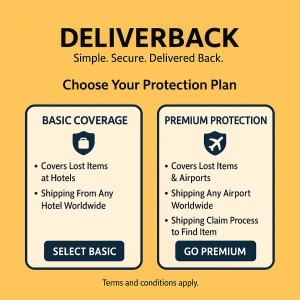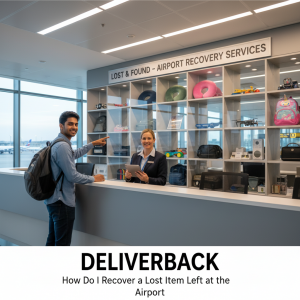Introduction
Traveling can be one of the most exciting experiences, opening the door to new cultures, places, and adventures. But behind every great trip is solid travel preparation. For seasoned travelers and beginners alike, knowing how to prepare for a trip can save time, money, and stress, making your journey as smooth and enjoyable as possible. This guide will walk you through each essential step of travel preparation, providing practical tips and real-life examples to ensure you’re well-prepared for your next adventure.
Why Travel Preparation Matters
Effective travel preparation can make or break your trip. Imagine arriving at your destination only to realize you’ve forgotten an essential document, underpacked, or missed out on a fantastic experience because you didn’t make reservations. Careful travel preparation minimizes these potential setbacks and keeps you ready to face any unexpected challenges. From packing to booking, your preparation sets the tone for a worry-free journey.
Step 1: Research Your Destination
The first and most crucial step in travel preparation is to research your destination thoroughly. Understanding the place you’re visiting helps you align your expectations, prepare for potential cultural differences, and avoid surprises. For example, some countries have strict dress codes, while others have specific guidelines on tipping or etiquette.
When planning a trip to Japan, for instance, you might discover that removing your shoes before entering homes or certain temples is customary. Knowing these details before you travel ensures that you’re prepared to respect local customs, making your visit more enjoyable and culturally enriching.
Step 2: Book Flights and Accommodation Early
Booking your flights and accommodation as early as possible is a key part of travel preparation. Not only can this save you money, but it also allows you to secure the best options. When preparing for a popular tourist season, like summer in Europe, prices can soar, and accommodations fill up quickly. Booking early also gives you a broader range of choices and the chance to pick accommodations that best match your travel goals.
For example, if you’re visiting Paris and want to stay near popular landmarks, securing your hotel or rental months ahead is a smart choice. Early booking also applies to attractions; for instance, tickets to the Eiffel Tower can sell out, so purchasing them well in advance is wise.
Step 3: Create a Packing Checklist
An organized packing checklist is the backbone of travel preparation. This list will ensure that you don’t leave any essentials behind, allowing you to relax and enjoy your trip without constantly worrying about forgotten items.
When preparing for a winter vacation in a cold climate, your packing checklist might include thermal layers, a heavy coat, gloves, and appropriate footwear. For a beach holiday, you’d likely focus on swimwear, sunscreen, and lightweight clothing. Tailor your checklist to your destination and activities, and you’ll have everything you need.
Step 4: Gather Important Documents
No travel preparation guide would be complete without mentioning the importance of organizing your documents. Make copies of your passport, driver’s license, travel insurance, and any visa documents. Keep digital copies on your phone and email them to yourself as a backup.
If you’re traveling internationally, check if you need a visa or specific vaccinations. Some countries, like Brazil, require proof of certain vaccinations for entry, so ensuring you’re prepared with all necessary documentation is essential. Incomplete document preparation can lead to denied boarding or entry, so this step should never be overlooked.
Step 5: Health and Safety Precautions
Health and safety are central to any travel preparation process. Research the health precautions needed for your destination and consult with a healthcare provider if you’re unsure. Vaccinations, prescriptions, and travel insurance are all critical elements to consider, especially when visiting regions with specific health risks.
For example, travelers going to tropical regions should be aware of diseases like malaria and dengue fever. Packing insect repellent, long-sleeve shirts, and mosquito nets can reduce your risk. Similarly, if you have specific health conditions, ensure you have enough medication for your entire trip, plus some extra in case of delays.
Step 6: Arrange Travel Insurance
Travel insurance is often overlooked but is an essential aspect of travel preparation. Comprehensive insurance covers unexpected situations such as trip cancellations, medical emergencies, lost luggage, or travel delays. Whether it’s a long-haul flight or a quick weekend getaway, travel insurance provides peace of mind.
Imagine you’re planning an adventure-filled vacation with activities like scuba diving or hiking. If an injury occurs, travel insurance can cover your medical expenses, which would otherwise be costly. Choosing a policy that suits your needs is crucial to ensuring you’re prepared for any emergency.
Step 7: Budgeting and Money Matters
Budgeting is a vital part of travel preparation that ensures you enjoy your trip without financial worries. Start by researching the average costs in your destination for food, transportation, and activities. Having a rough budget allows you to allocate funds accordingly and avoid overspending.
For instance, a trip to New York City might require a larger budget due to high dining and attraction costs, while a visit to Southeast Asia may be more affordable. Decide on a daily budget, and consider carrying multiple payment options like credit cards, cash, and digital wallets for convenience.
Step 8: Learn Basic Phrases and Customs
Language barriers can be challenging, especially in non-English-speaking countries. As part of your travel preparation, take time to learn some basic phrases in the local language. Phrases like “hello,” “please,” “thank you,” and “where is…” can go a long way in making your interactions smoother.
For example, if you’re visiting Italy, knowing simple phrases like “Ciao” (hello) and “Grazie” (thank you) can make a significant difference. Additionally, understanding basic customs, such as how to greet locals, shows respect and can enrich your travel experience.
Step 9: Plan Your Itinerary
While some prefer to keep travel plans flexible, a rough itinerary is an essential part of travel preparation, especially for shorter trips. Outline key activities, landmarks, and any reservations. A planned itinerary helps you make the most of your time without feeling rushed.
For example, if you’re visiting Rome for a weekend, your itinerary might include major sites like the Colosseum, Vatican Museums, and Pantheon. Planning when and how to visit these sites maximizes your time and ensures you don’t miss anything important.
Step 10: Prepare for the Unexpected
Part of effective travel preparation is being ready for the unexpected. Delays, lost luggage, or sudden changes in plans can be frustrating, but having a flexible mindset and backup strategies can help you handle these situations smoothly. Make sure you are aware about solution such as Deliverback in case your item was lost!
For instance, if your flight is delayed and you miss your connecting flight, knowing alternative routes or having a backup plan reduces stress. Packing essential items like snacks, a phone charger, and a book in your carry-on can make delays more manageable.
Step 11: Final Packing and Checklist Review
A day or two before your trip, do a final review of your packing checklist and documents to ensure nothing is left out. Double-check that you have everything, from essentials like toiletries and clothing to specific travel items like adapters and portable chargers.
If your travel preparation includes electronic devices, make sure they’re fully charged, and pack any necessary accessories. For instance, if you’re a photographer, don’t forget your camera battery charger, spare batteries, and memory cards.
Step 12: Rest and Relax
Lastly, remember to rest before your journey. Good sleep is an often-overlooked part of travel preparation, yet it can make a big difference in your overall experience. Fatigue and stress can hinder your enjoyment, so prioritize rest as you get closer to your departure date.
Think of travel preparation as a marathon, not a sprint. By pacing yourself and allowing for downtime, you’re more likely to start your journey with energy and enthusiasm.
Conclusion
In conclusion, successful travel preparation is the key to a memorable, stress-free trip. By planning, organizing, and preparing for the unexpected, you’re not only setting yourself up for smooth travels but also freeing yourself to truly enjoy the experience. Whether it’s a short getaway or a long-term adventure, travel preparation allows you to approach your journey with confidence, knowing you’ve covered all the bases. With these steps, you’ll be ready to face any challenge, making each trip a joyful exploration rather than a stressful event. So, as you plan your next adventure, remember that good travel preparation is the foundation of any great journey. Happy travels!


